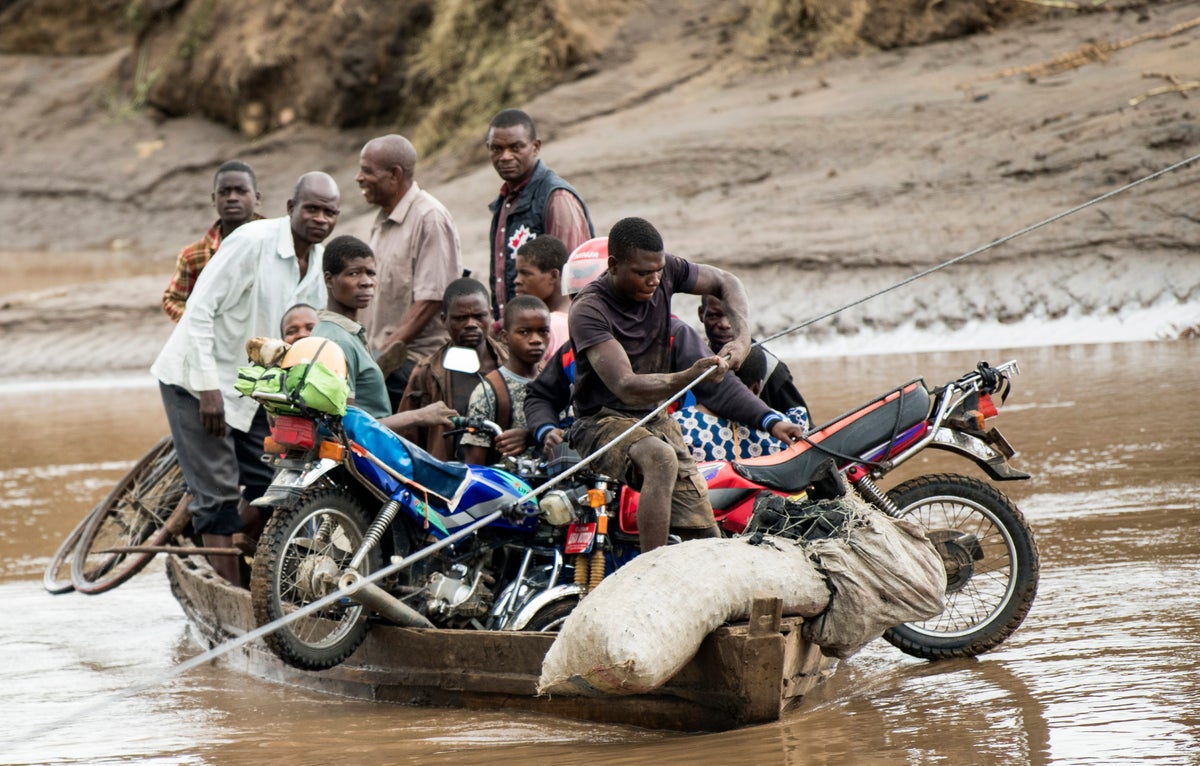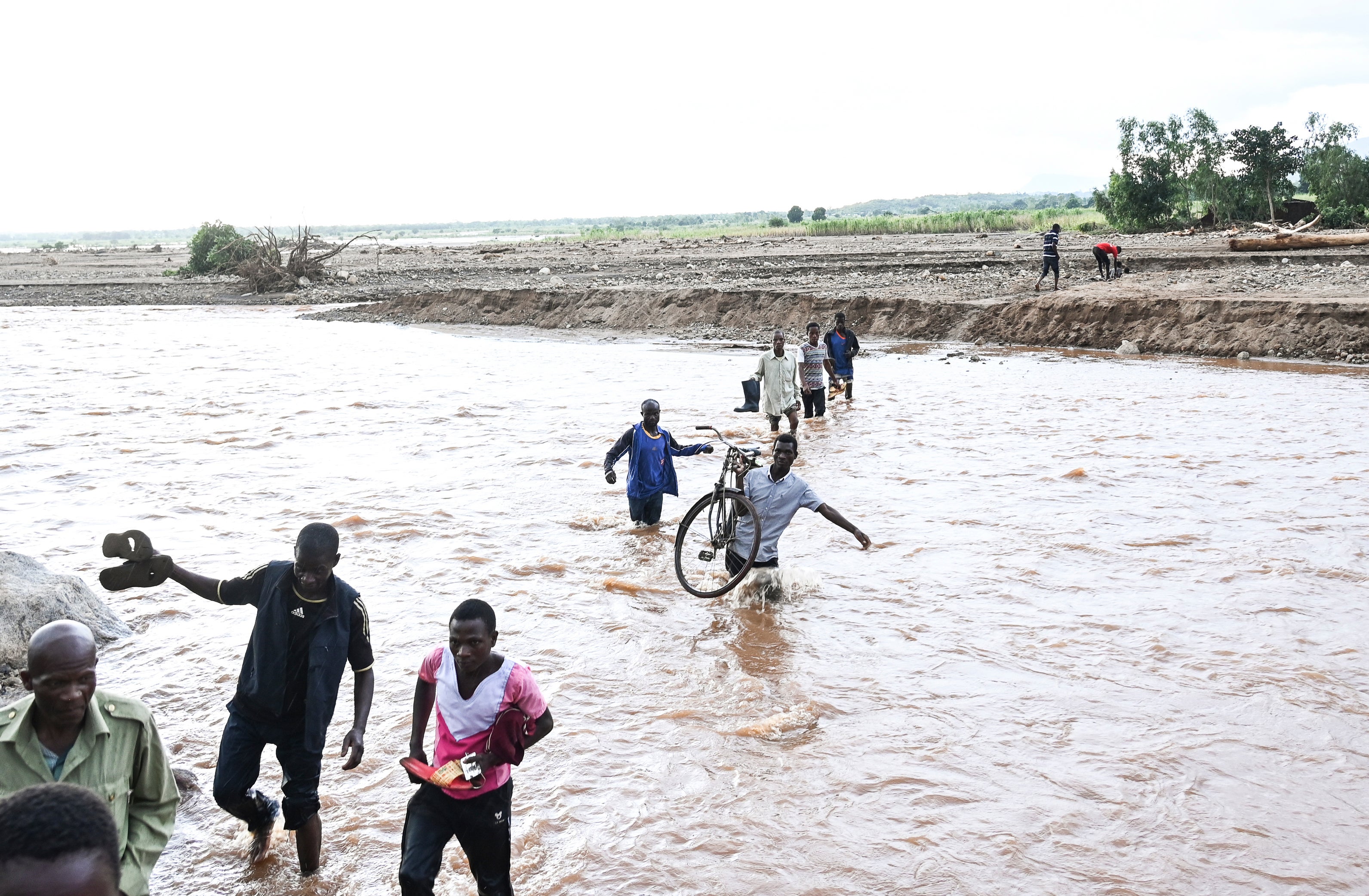
Most countries that are vulnerable to climate disasters are drowning in debt, which is hindering their capacity to effectively respond to climate-related emergencies, a new study has revealed.
The research conducted by international charity ActionAid, released on the sidelines of the World Bank and International Monetary Fund (IMF) Spring Meetings, revealed that 93 per cent of countries in the Global South that face most impact from a warming planet are also under significant debt distress.
Nine highly climate-sensitive countries, including Somalia, Malawi, and Mozambique, are already reeling under debt distress, the report noted. Forty countries highly susceptible to climate crisis are at moderate or high risk of debt distress. Only four countries facing climate disasters are at low risk of debt distress, the study said.
As World Bank shareholders gathered in Washington for their annual spring meeting on Monday, discussions on economic policy options for Global South countries took centre stage.
This report sounded the alarm for urgent need for debt cancellation for climate vulnerable countries and a radical transformation of global debt management to address this pressing crisis.
"The debt crisis and climate crisis are inextricably linked, creating a vicious cycle that traps vulnerable countries in a downward spiral," warned David Archer, ActionAid International's head of programmes and influencing.
Malawi, which recently bore the brunt of cyclone Freddy, displacing over half a million people and causing widespread destruction, served as a glaring example of a nation weighed down by debt.
"Our government is being forced to allocate limited resources to repay old loans, leaving us ill-equipped to rebuild and recover from cyclone Freddy. Climate disasters are becoming more frequent and devastating, with women and girls bearing the brunt of the impact,” Pamela Kuwali, country director at ActionAid Malawi, said.
The study also revealed that 38 out of 63 most climate vulnerable countries are slashing spending on vital public services to service their debt, jeopardising their ability to effectively respond to climate disasters.
Around 42 other African countries are at high risk of debt distress due to the impacts of climate change and other factors. Another example of the debt distress affecting climate adaptation is Ghana, which defaulted on its $28.4bn external debt in December.
John Nkaw, country director at ActionAid Ghana, pointed out that Ghana is forced to spend “more on debt servicing than on education and health”, perpetuating a destructive cycle where the country lacked the necessary resources to invest in climate adaptation, resilience, and disaster preparedness.
“We know that Ghana will need about 60 per cent of its debt cancelled if it is to return to a path of sustainability – therefore we demand a proportion of debt cancellation,” Mr Nkaw said.
“If freed of debt, we would be able to strengthen small and medium sized businesses, invest in renewable sources of energy, smallholder farmers and agroecology. But these choices aren’t an option.”

Another factor compounding the debt distress is that the countries are coerced into repaying their debts in foreign currencies, predominantly US dollars, which compels them to invest in extractive industries like fossil fuels and large-scale industrial agriculture, exacerbating environmental degradation and worsening climate change impacts.
Mr Archer pointed the finger at the World Bank, IMF, and private banks based in wealthy countries for hindering climate progress by imposing stringent conditions on debt repayments for climate-vulnerable countries.
"These debts are entrapping countries in a detrimental cycle, forcing them to cut public spending and invest in activities that harm the climate just to repay their debts," said Mr Archer.
The report called for immediate debt cancellation for countries most vulnerable to climate change and a comprehensive overhaul of global debt management to break free from this harmful entanglement.
International financial institutions are facing growing calls to make finances available to poor countries facing increasing pressure due to climate crisis. Countries like Pakistan, which are under critical debt burden and suffered devastating floods last year, have demanded debt relief in the past. Organisations are calling for urgent action to close the funding gap amid the ongoing high level meetings.







